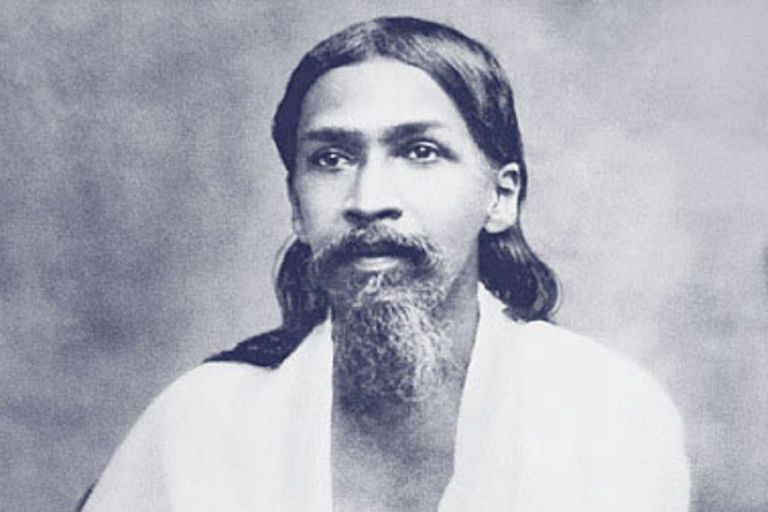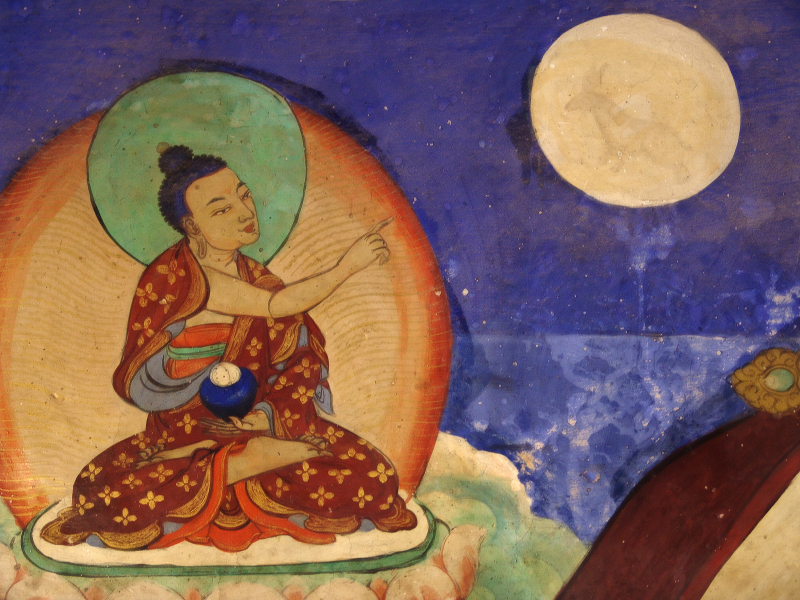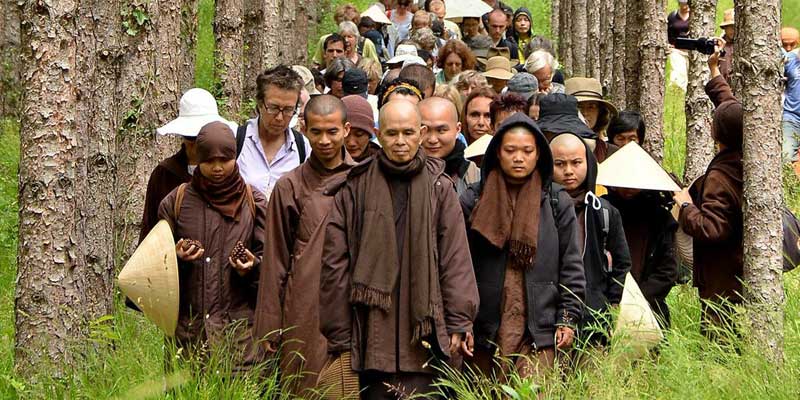Sri Aurobindo in his vision for the future of humanity explored the various possibilities and dynamics through which it could progress to towards a utopian ideal of human unity. He asked the question whether such a Human Unity was possible and under what conditions would humanity reach such an ideal that free self-determined, unfettered by internal contradictions, conflicts and clashes. His social and political thought is expressed in books like The Ideal of Human Unity, The Human Cycle and War and Self Determination first published in the period between 1916- 1920.
The Turn Towards Unity: The Necessity and Dangers
According to Sri Aurobindo, the need for Human Unity is the deepest spiritual needs which makes it almost a future necessity and yet the way to it is fraught by many dangers given the complexity of the present nature of humanity. He states:
“While it is possible to construct a precarious and quite mechanical unity by political and administrative means, the unity of the human race, even if achieved, can only be secured
and can only be made real if the religion of humanity, which is at present the highest active ideal of mankind, spiritualises itself and becomes the general inner law of human life. The outward unity may well achieve itself,—possibly, though by no means certainly, in a measurable time,—because that is the inevitable final trend of the working of Nature in human society which makes for larger and yet larger aggregations and cannot fail to arrive at a total aggregation of mankind in a closer international system”. (Sri Aurobindo, 1997, p.571)
According to him a mere outward unity- mechanical or administrative will never be sufficient in creating the ‘Ideal’ if the nature of Humankind is given to politics of domination, repression, competition and clash. The intention of Nature is to take up and perfect all these regressive movements and she will not rest till the inner basis for a true Unity is perfected.
“The emergence of an ideal in human thought is always the sign of an intention in Nature, but not always of an intention to accomplish; sometimes it indicates only an attempt which is predestined to temporary failure. For Nature is slow and patient in her methods. She takes up ideas and half carries them out, then drops them by the wayside to resume them in some future era with a better combination. She tempts humanity, her thinking instrument, and tests how far it is ready for the harmony she has imagined; she allows and incites man to attempt and fail, so that he may learn and succeed better another time. Still the ideal, having once made its way to the front of thought, must certainly be attempted, and this ideal of human unity is likely to figure largely among the determining forces of the future.” (Sri Aurobindo, 1997, p.280)
According to Sri Aurobindo the human being is as yet a ‘ transitional being’ as it has not resolved the fundamental existential issues that stare her in the eyes. Its problems are stem from its incapability to harmonise and its solutions too have a sense of the imperfection- with touch of tears and grief. It is only by a constant power of aspiration and continued heightening of consciousness that humanity can hope to arrive at a state that most secular and inclusive in consciousness. It is only this widened consciousness in incapable of any harm, repression and mutilation that can become the true basis of the emergence of future forms of societal structures based on inherent Unity of Consciousness.
The Imperfection of the Past Social Aggregates: In Sri Aurobindo’s view, to understand the future it would be useful to study the past to understand the nature of social aggregations. According to Sri Aurobindo, if we look at the nature of past aggregates in a broad sweep we find that nature of aggregates has in the past been determined by the tendency of human being to dominate and destroy. The unequal opportunities for the progress of humanity have created the domination and exploitative ethos. However, the way to the future lies in perfection of social aggregates that need to purge the exploitative impulse and create an ethos of harmonisation of the multiple strands of social consciousness. He states:
“the final aim of Nature in human life cannot be the exploitation of the many by the few or even of the few by the many, can never be the perfection of some at the cost of the abject submergence and ignorant subjection of the bulk of humanity; these can only be transient devices. Therefore we see that such dominations bear always in them the seed of their own destruction. They must pass either by the ejection or destruction of the exploiting element or else by a fusion and equalisation. We see in Europe and America that the dominant Brahmin and the dominant Kshatriya have been either abolished or are on the point of subsidence into equality with the general mass. Two rigidly separate classes alone remain, the dominant propertied class and the labourer, and all the most significant movements of the day have for their purpose the abolition of this last superiority.” (Sri Aurobindo, 1997, pp.287-288)
The Inadequacy of the State Idea
The way to understand the complexity of lines of future societal evolution is to understand the relationship of the Individual and the social aggregates. To quote him:
In the relations between the individual and the group, this constant tendency of Nature appears as the strife between two equally deep-rooted human tendencies, individualism and collectivism. On one side is the engrossing authority, perfection and development of the State, on the other the distinctive freedom, perfection and development of the individual man. The State idea, the small or the vast living machine, and the human idea, the more and more distinct and luminous Person, the increasing God, stand in perpetual opposition.” (Sri Aurobindo, 1997, pp.291-292)
According to Sri Aurobindo the aim of any social formation is to afford the individual maximum opportunities for self-development and rich varied expression. While the formation of social aggregates is a gregarious impulse of humanity, the mass collective consciousness is in its nature inferior to the free action of the individual. The need for collective ordering of human life has given rise to the idea of the ‘State’ that governs and rules the life of the collective. However, the idea of ‘State’ is often riddled with inadequacies in terms of the kind of opportunities that it affords individual growth. Sri Aurobindo reflects on the nature of the organised State:
“The organised State is neither the best mind of the nation nor is it even the sum of the communal energies. It leaves out of its organised action and suppresses or unduly depresses the working force and thinking mind of important minorities, often of those which represent that which is best in the present and that which is developing for the future. It is a collective egoism much inferior to the best of which the community is capable.” (Sri Aurobindo, 1997, p.301-302)
According to Sri Aurobindo, in modern times, the State has made some improvement in its attempt to assure general economic well- being and moral intellectual justice for the community. However, State tends to generally move towards uniformity because uniformity is easy for it to practice. It does not naturally protect the diversity of expressions in its bid to move towards a single vision of State education, State culture, State religion. The press towards a mechanical uniformity in Sri Aurobindo’s view is not life but death of the rich multi-forms of which a culture is capable. Sri Aurobindo states:
The business of the State, so long as it continues to be a necessary element in human life and growth, is to provide all possible facilities for cooperative action, to remove obstacles, to prevent all really harmful waste and friction, —a certain amount of waste and friction is necessary and useful to all natural action,—and, removing avoidable injustice, to secure for every individual a just and equal chance of self-development and satisfaction to the extent of his powers and in the line of his nature….. But all unnecessary interference with the freedom of man’s growth is or can be harmful. Even cooperative action is injurious if, instead of seeking the good of all compatibly with the necessities of individual growth,—and without individual growth there can be no real and permanent good of all,—it immolates the individual to a communal egoism and prevents so much free room and initiative as is necessary for the flowering of a more perfectly developed humanity.” (Sri Aurobindo, 1997, p.301-302)
According to Sri Aurobindo the State often behaves like a mechanical entity and not as a living organism capable of tact, taste, delicacy and intuition. Its primary ideal is as yet self -preservation and a ‘sacred egoism’. The State is in some ways a clumsy convenience and need not be made an end in itself.
The Future Societies
Sri Aurobindo writing at the beginning of the 20th century, could foresee that the future of the warring nations lay in the formation of a United league of Nations. The formation of the United Nations is in consonance with his view on future forms. According to him the nature of intellectualised religiosity within humankind impels it to seek a greater and still greater Unity of peoples and Nations. He etched two possible paths as expressions of this Unity – first, as a single ‘World State’ that eliminates all nationalities or as loose closely knit nonviolent confederation of nations. His view is that the latter is more suitable for human evolution based on the principle of Unity in Diversity. His view is that a single mechanical administrative unity with a stress on uniformity can kill the richness and multiplicity of cultural forms. There may be other future forms even beyond the loose confederation of nations. The future forms of society must grow out from human aspiration for a greater spiritual freedom and an essential freedom of imagination is essential for this. According to Sri Aurobindo to claim this essential freedom in a deep spiritual poise is an act of a ‘spiritual anarchy’ which can become the basis of future societal forms. The societies where harmonies sing out in freedom from within deeply free individuals cannot but be impelled towards a greater brotherhood based on an inner Unity. To end with his words:
A spiritual oneness which would create a psychological oneness not dependent upon any intellectual or outward uniformity and compel a oneness of life not bound up with its mechanical means of unification, but ready always to enrich its secure unity by a free inner variation and a freely varied outer self-expression, this would be the basis for a higher type of human existence.
Could such a realisation develop rapidly in mankind, we might then solve the problem of unification in a deeper and truer way from the inner truth to the outer forms. Until then,
the attempt to bring it about by mechanical means must proceed. But the higher hope of humanity lies in the growing number of men who will realise this truth and seek to develop it in themselves, so that when the mind of man is ready to escape from its mechanical bent,—perhaps when it finds that its mechanical solutions are all temporary and disappointing,—the truth of the Spirit may step in and lead humanity to the path of its highest possible happiness and perfection.” (Sri Aurobindo, 1997, p.578)














